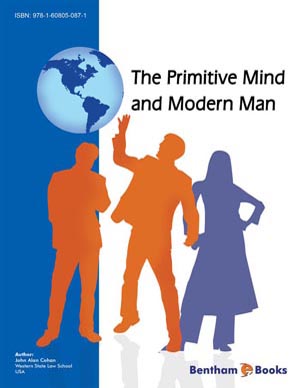Abstract
This chapter discusses the importance of aggression, in its various modes, not only as a means of resolving conflicts, but as something important for group cohesion. Humans beings are universally capable of aggressive behavior. A common theme is that if a harm has been done, the injured party or group feel they must seek vengeance-by ceremonial fighting, revenge by sorcery, open discussion and argument, apology and forgiveness, settlement of disputes at ceremonial feasts, by the payment of compensation, or other means. Many groups believe that it is important to sustain traditional enmities with other groups, to promote solidarity within the clan. A mild form of conflict is known as petty wrangling, perhaps consisting of teasing or arguing over various privileges or prerogatives. In some cultures people will openly engage in violent displays of emotion-e.g., fights between spouses out in the open-with the expectation that others will intervene and prevent the situation from escalating. Adultery is a common source of conflict-and is remedied by monetary compensation in some cases and death of the offending party. An ancient and widespread way of settling conflicts is wergild, or blood money, presently operative in many regions. Retaliation for acts of sorcery is quite common: For example, the victim will engage in countermeasures to cast a spell on the suspected sorcerer. A pervasive phenomenon is the idea of collective responsibility: This entails that people are collectively responsible for the acts of others in their clan-for the individual only functions as a member of the group, there is tremendous strength of bond, and group consciousness is more important than individual consciousness. A man’s improper sexual advances against a girl from another tribe, for instance, may embroil whole villages until vengeance is exacted. Collective responsibility even entails the idea that revenge can be exacted against anyone in the wrongdoer’s tribe. Collective responsibility is the philosophy of modern day terrorists: the indiscriminate targeting of civilians of the enemy is justified because they are collectively responsible for the policies of their government. In many cultures the expression of anger or conflict, particularly by women, is highly improper, and emotional outbursts must be kept in check. In many of these cultures there are periodic “rituals of rebellion,” in which people will express their pent up anger at rulers and chiefs, or women at the men, singing and dancing lewdly. Rather than being socially disruptive, these rituals are ways of integrating groups and forming social balance. Dueling in the West was a long-standing mode in which men would resolve insults and minor disputes that impugned their honor. Lynching in America was also a method by which mobs would enforce a code of honor by taking the law into their own hands. In modern cultures today conflicts often take the form of vehement and unpleasantly sharp verbal attacks against adversaries-in politics and other contexts.














